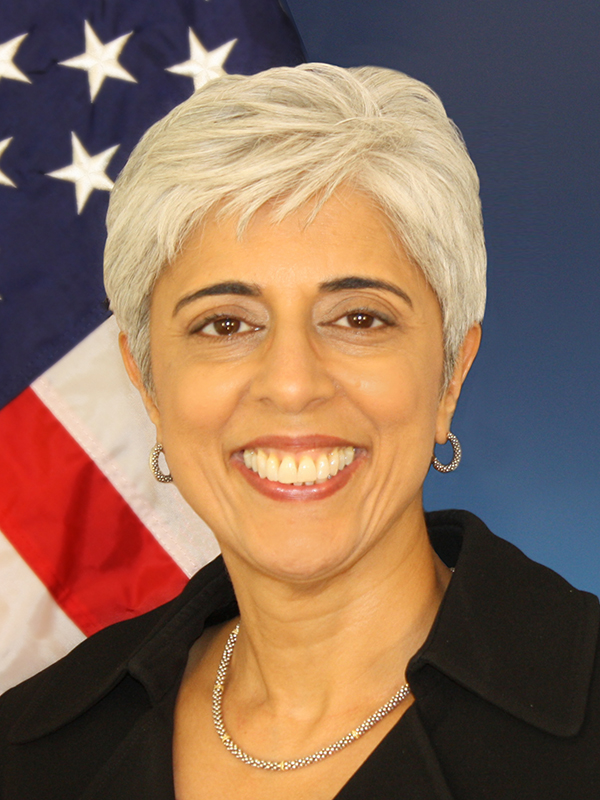Physicist becomes US science adviser
Applied physicist Arati Prabhakar becomes the first woman to hold the directorship of the Office of Science and Technology Policy. Peter Gwynne reports

US president Joe Biden has nominated applied physicist Arati Prabhakar as the next director of the Office of Science and Technology Policy (OSTP). If approved by the US Senate, the 63-year-old would become the first woman – as well as the first immigrant and person of colour – to take up the key role in US science. Biden has also announced that Prabhakar will become US science adviser and will join the president’s cabinet.
Prabhakar, who was born in India, already has other significant firsts to her name. In 1984 she became the first woman to receive a PhD in applied physics from the California Institute of Technology. Following a stint at the Defense Advanced Research Projects Agency (DARPA), at 34 she became the first female director of the National Institute of Standards and Technology (NIST), a position she held from 1993 to 1997.
Prabhakar also has experience in industry, having served as chief technology officer and senior vice president of the aerospace firm Raychem from 1997 to 1998. She then worked as a venture capitalist for US Ventures – a company in California that supports information technology start-ups. From 2012 to 2017, Prabhakar served as DARPA director, where she expanded the agency’s focus on life science and medicine.
‘Uniquely qualified’
Prabhakar’s appointment as US science adviser follows the departure of the mathematician and geneticist Eric Lander, Biden’s first science adviser and OSTP director. Lander resigned in February from both roles after an investigation found “credible evidence” that he had mistreated and demeaned OSTP staff. Biden then appointed Francis Collins, a former head of the National Institutes of Health, as science adviser, while sociologist Alondra Nelson took up the OSTP directorship – controversially splitting the science adviser and OSTP director roles between two people when it had traditionally been held by one person. Nelson will resume her previous role as deputy director of OSTP’s science and society team once Prabhakar is confirmed.
“[Prabhakar is] a brilliant and highly respected engineer and applied physicist and will lead the [OSTP] to leverage science, technology, and innovation to expand our possibilities, solve our toughest challenges, and make the impossible possible,” says Biden. Members of the scientific community echoed those sentiments. “Her record of excellence and innovation will be an asset to the agency,” says Deborah Cooper, the current president of IEEE-USA, which represents more than 150,000 professionals in engineering, computing and technology.
Former presidential science adviser Neal Lane and Norman Augustine, retired chair and chief executive of Lockheed, noted in a joint letter to Congressional leaders that Prabhakar is “uniquely qualified” to lead the OSTP. “Issues such as international competitiveness, climate change, a clean energy future, and health research all require the kind of leadership and experience Prabhakar can provide,” they added. Lane now calls for Prabhakar’s nomination to be prioritized. “I hope the [Senate] committee receives many letters urging quick confirmation,” he told Physics World. “In my view the situation is urgent.”